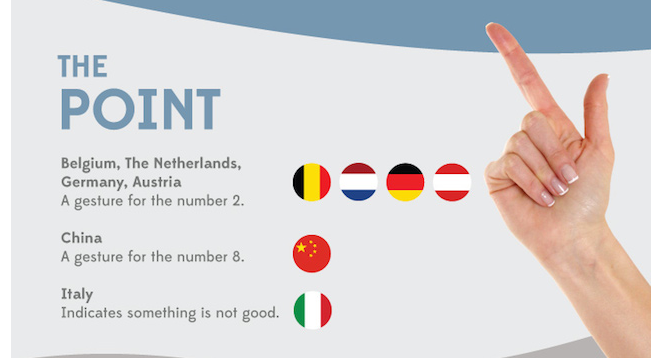Learning how to play the guitar is great. Learning humility and patience is better.
Bible Study Ideas and Commentary for Proverbs 8
Solomon's "wise person" acts a lot like a disciple of Jesus. They both speak clearly and truthfully. They lead justly and diligently. And the "self-help" they pursue above all is godly wisdom.
For wisdom is better than jewels, and nothing desirable can equal it. Proverbs 8:11

[Throughout the years, I have produced a newsletter for teachers to help with that week's Bible study. I'm going through the very slow process of online-ifying old lessons in order to easily reference past ideas and topics.]
Getting Started: Say What You Mean, Mean What You Say
In our passage, Solomon will tell us what wisdom "looks like" in daily life. One example is that wisdom never tries to hide the truth and never talks out of the side of her mouth. That seems like a potentially fun way to start thinking about the passage. There are so many ways that we miscommunicate (intentionally or not)! Here are some of the ways I thought of that are secretive or deceptive or careless. If any of these resonate with you, think about how you might still use them today -and- how you have felt after discovering someone used it on you.
Idea 1: Speaking in Code: Did you ever have a secret language as a kid? I certainly did. Even when I was in high school we still had our bizarre things we would say that our teachers would not understand. I still chuckle for no apparent reason when I hear words like "egg" and "fish" and "rip".
How about as a young adult? Did you have any secret ways of communicating with your friends? I found out that my wife had a hand signal she used for a friend to come and "rescue" her from a conversation she didn't want to be in. She used it on me! More than once! Of course, I was clueless.
Idea 2: Speaking in Graphics. Are there forms of communication today that leave you kind of in the dark? Two moving targets for me are emojis and memes. Have you ever looked at one and just been lost? "I don't understand how that applies to anything we're talking about right now." To a certain extent, they mean what you think they mean, but there's a bottomless pit of meaning behind them that you either know or don't. (Only use a meme that you feel like you understand. I watched an entire video about "Rickroll" just to make sure it was safe.) Here are some versions of popular memes. Some are fun, some are intended to bother you. Just like verbal language!
Idea 3: Lost in Translation. I grew up in an extremely multicultural school system, and it was not uncommon for my friends to substitute a word with something from their home language just to throw us off (or sometimes because there was no good English substitution for what they were trying to say). And, of course, there are all sorts of funny ways that things get "lost in translation". There's one amazing sign in India that they have translated into English as "Eating carpet strictly prohibited". (Warning: be very careful with a "translation fail" internet search; many are considered fails because of how inappropriate they are in English.)
This doesn't just have to do with words. Symbols and signals also can mean different things from one culture to another. Here are some relatively safe ones that I found:
Obviously, there are other examples you could use. The primary purpose of this "getting started" idea is simply to establish that it takes effort to communicate accurately, and it takes integrity to communicate truthfully. A wise person does both. Further, we can easily see examples in ourselves of when we have communicated wisely and when we have not. That's all I want to establish right now. We will talk about deliberate deception and other not-fun topics later in the lesson. Whenever possible, we keep things light at the beginning of a lesson. It's good to be able to laugh at ourselves. We will have plenty of serious things to talk about!
We are going to be going through many "character traits" of wisdom in our study this week -- speaking clearly and rightly is just one of them. To learn best from the passage, we need to get in the mindset that (1) God has a standard for wise behavior, and (2) we fall short of it, perhaps more than we realize.
Where We Are in Proverbs
I've mentioned that chapters 1-9 serve as an introduction to the rest of Proverbs, covering the purpose of being wise and the general categories of wise and foolish. Chapters 8 and 9 function together as a poem that personifies wisdom as a woman. The Bible Project video I shared a few weeks ago explains exactly what is intended by this analogy:
We might think of our specific passage this week, 8:6-21, as her "sales pitch" for why you should be wise rather than foolish.
Again, let me remind that this is a general, inter-personal wisdom. These are the sorts of statements that can be used by any person anywhere in the world. It is not about salvation. However, we will find that there are a lot of parallels between what Solomon describes as "wise living" and what Jesus describes as "being His disciple". That makes these passages doubly useful.
Part 1: Valuable (Proverbs 8:6-11)
6 Listen, for I speak of noble things, and what my lips say is right. 7 For my mouth tells the truth, and wickedness is detestable to my lips. 8 All the words from my mouth are righteous; none of them are deceptive or perverse. 9 All of them are clear to the perceptive, and right to those who discover knowledge. 10 Accept my instruction instead of silver, and knowledge rather than pure gold. 11 For wisdom is better than jewels, and nothing desirable can equal it.
"God's wisdom is infinitely valuable" (just like God's kingdom).
The Lifeway lesson focuses on the simple point that "wisdom is valuable". Well, yeah. We've established that. I want to focus on the "wise living" modeled for us in these verses. The implication is simple: wisdom is intrinsically winsome, and we can (and should) reflect those winsome traits ourselves.
First things first; start with this exercise: list the characteristics that wisdom says she embodies and also the characteristics she avoids. (Don't make this too hard; just go with exactly what the verses say. Positive characteristics: speak of noble things, says what is right, tells the truth, speaks righteously, speaks clearly. Negative characteristics: does not speak wickedly, deceptively, or perversely.) What words are unfamiliar to you? What characteristics are not characteristic of you? What's the overall picture here of wisdom?
I think this is an excellent, practical list. Here's some additional background:
"Noble" means "excellent". It is related to a Hebrew word meaning "conspicuous", basically meaning that it is a matter worth thinking and talking about. It makes me think of what Paul said in Philippians 4:
8 Finally brothers and sisters, whatever is true, whatever is honorable, whatever is just, whatever is pure, whatever is lovely, whatever is commendable—if there is any moral excellence and if there is anything praiseworthy—dwell on these things.
Essentially, the wise person does what Paul suggests.
"Right" in this context refers to being morally or ethically straight, not "accurate". "Accuracy" comes later. The wise person speaks words that conform to God's understanding of right vs. wrong. How do you know that? By studying God's Word.
"Truth" refers to the "accuracy" I mentioned above. This is truth in contrast with falsehood. But in this context, it's talking more about Truth than truths. Its opposite is wickedness. If you get some facts wrong, that's not necessarily wicked. But it can be. A wise person would never, ever, under any circumstances, speak against Truth.
"Righteous" carries the same idea as "right" above.
"Clear to the perceptive" means being straightforward and knowable (look up the word "perspicuous" for a great synonym to this). When a wise person speaks, someone who is paying attention can understand exactly what that person both says and means.
[Aside on parables. This is an important clarification in my opinion. Jesus explained that He spoke in parables precisely so that people would not understand Him - "though hearing, they do not understand". That sounds the opposite of "clear" doesn't it? Remember Jesus' complete purpose, summarized from Isaiah 6: "Otherwise they might see with their eyes, hear with their ears, understand with their hearts, and turn and I would heal them." Speaking in parables was a form of judgment. If they were "perceptive", they would be able to understand the true meaning in His words, as He explained to His disciples. And that's exactly what Solomon says in our passage: the wise person is not simply "clear" but "clear to the perceptive".]
And then on the other side, the foolish person speaks wickedly, is deceptive, and is perverse. There is no misunderstanding what those words mean.
Then verses 10 and 11 describe the absolute value of wisdom. Silver, gold, and jewels, the highest level of material wealth in that day.
[Aside on 80s Christian music. In 1982, Lynn DeShazo published a song you probably know: "Lord, You are more precious than silver; Lord, You are more costly than gold. Lord, You are more beautiful than diamonds, and nothing I desire compares with You." That text is obviously inspired by these verses. It is an example of what we generally call "spiritualizing the Old Testament". The verses Solomon wrote are not about Jesus. They are about wisdom. But they're really pretty, so if we make them about Jesus, we can sing them in a song. (Point taken: if you replace "Lord" with "Wisdom", I don't see many youth groups singing this song!) Is there a problem with doing that? Well, think of it this way. Is it misrepresenting these verses? Yes. Are there other verses actually about Jesus that could be used in a song? Yes. So let's just use verses the right way. But here's the more important question: does this misuse of verses cause a problem? Not exactly. But I think it confuses what the Bible is impressing upon us. What is Solomon telling us to obtain as more valuable than anything else? Wisdom. What did Jesus tell us to obtain that is more valuable than anything else? The kingdom of heaven. (Read Matthew 13; this is the chapter about parables I mentioned above.) The point? Those are things that are obtainable. What did Paul say was more valuable than anything else? Knowing Christ (read Philippians 3). We are not obtaining Christ. Christ is unobtainable. (Remember that Jesus told Mary not to "cling" to Him.) What we can obtain is knowledge of Christ which leads us to a saving relationship with Christ which leads us to the Holy Spirit. And that's the great mystery of the ages: Christ in us, the hope of glory. Replacing "wisdom" with "Jesus" simply muddies the distinction between them. Yes, Jesus is the wisdom of the Father, the "Word" as it were. But that wisdom is different than the wisdom Solomon talks about here. It's subtle, and it might not be a big deal to most people, but I want to try to be precise in the things I say about Jesus.]
So, how do we relate these verses to Jesus? It's very simple. The wise person pursues God -- right? that's exactly what Solomon said in the first 2 chapters -- and God has chosen to reveal Himself to us in Jesus. Therefore, the wise person learns truth from Jesus. And what does Jesus teach? Repent and pursue the kingdom of heaven. See the parallel? Solomon says to pursue wisdom because there is nothing more valuable. Jesus says to pursue the kingdom of heaven because there is nothing more valuable. Those two statements are not contradictory; the second ultimately fulfills the first. Think about it -- the characteristics of a Christian in many ways mirror the characteristics we are learning about the wise person in Proverbs. That's not a coincidence. The wisdom that was bestowed by God on Solomon is wisdom that is available to all of us now in Jesus by the Spirit. That is not contradictory!
To prove my point, let me give you a summary of wise vs. foolish in Proverbs. Your task would be to see where the parallels are found in the New Testament and Christianity.
Character Traits in Proverbs
Summarized from the Expositor's Bible Commentary
Traits that are Wise
Avoiding strife (20:3)
Compassion for all life (12:10)
Contentment (13:25, 14:30, 15:27)
Diligence (6:6-13, 12:24, 13:4)
Faithful love (20:6)
Faithfulness (3:5-6, 5:15-17, 25:13, 28:20)
Generosity (21:26, 22:9)
Honesty (16:11, 24:26)
Humility (11:2, 16:19, 25:6-7, 29:23)
Integrity (11:3, 25:26, 26:18)
Kindness (11:16-17)
Kindness to enemies (25:21-22)
Leadership (30:19-31)
Loyalty (19:22)
Patience (15:18, 16:32)
Promoting peace (16:7)
Righteousness (4:26-27, 11:5-6, 12:28, 13:6, 29:2)
Self-control (17:27, 25:28, 29:11)
Strength in adversity (24:10)
Teachability (15:31)
Truthfulness (12:19, 23:23)
Traits that are Foolish
Anger (29:22)
Beauty without discretion (11:22)
Blaming God (19:3
Dishonesty (24:28)
Greed (28:25)
Hatred (29:27)
Hot temper (19:19, 29:22)
Immorality (6:20-35)
Injustice (22:16)
Jealousy (27:4)
Lack of mercy (21:13)
Laziness (6:6-11, 18:9, 19:15, 20:4, 24:30-34, 26:13-15)
Meddling (26:17, 30:10)
Pride (15:5, 16:18, 21:4, 29:23, 30:13)
Quarrelsomeness (26:21)
Self-righteousness (30:12)
Stubbornness (29:1)
Unfaithfulness (25:19)
Unneighborliness (3:27-30)
Vengefulness (24:28-29)
Go through the lists bit by bit. Hopefully, you can see why the wise traits should be pursued by a Christian and why the foolish traits should be avoided. But then ask yourself this: how hard do I pursue building the wise traits in my life? How hard do I work to get rid of the foolish traits in my life?


[Aside on Self Help. "Self Help" has been a big deal in our country for a while. Another way you might apply this section to yourself is to ask yourself what kinds of self-help you have been putting your time and money into. Are you
learning a new language?
learning a hobby?
developing a skill for work?
If so, are you putting equal work into building up wise character traits? That's the point Solomon is making. There should be nothing more valuable to us (after we have come to Jesus in the first place) than growing in our likeness to Jesus. (Again -- all of those "wise" traits are things Jesus exemplified.) Learning how to play the guitar is great. Learning humility and patience is better.]
One of the most important functions of a Sunday School class or any ongoing small group Bible study is discipleship. Based on the characteristics we have learned about wisdom, it would not be a stretch to call "living wisely" the Old Testament equivalent to becoming a disciple of Jesus. I have a separate article on how those two things go together:
Part 2: Powerful (Proverbs 8:12-16)
12 I, wisdom, share a home with shrewdness and have knowledge and discretion. 13 To fear the Lord is to hate evil. I hate arrogant pride, evil conduct, and perverse speech. 14 I possess good advice and sound wisdom; I have understanding and strength. 15 It is by me that kings reign and rulers enact just law; 16 by me, princes lead, as do nobles and all righteous judges.
"God's wisdom can be used to rule nations."
While Lifeway's key point to this passage is absolutely true, I want to do the same thing as with the previous passage and focus on the character traits associated with wisdom. So, then go ahead with the same task as the previous section: list the characteristics associated with wisdom, and those said to be opposed to wisdom. (And again, don't be clever. Just go with exactly what the text says. Wisdom is shrewdness, knowledge, discretion, good advice, understanding, strength. Wisdom is not evil, prideful, perverse.) Just like before, that's such a great list! Do you understand what those characteristics mean? Do you see them in your life? What needs to change in your life?
As before, let me give you some simple background:
"Shrewdness" has a negative connotation today due to its relationship with "shrew", but in Hebrew is just means "the right use of knowledge in tough circumstances". A shrewd person can be faced with a bad situation and know what to do to get out of it (like the shrewd manager in Luke 16). Today, we might think of this as "sensible" or even "street smart".
"Knowledge" is a callback to the knowledge described in verse 10 -- the sort of thing that must be taught (parallel uses of this word in the New Testament often refer to studying the Bible for knowledge).
"Discretion" is a great word that sometimes I think we've completely lost the meaning and value of in our culture. Discretion refers to the ability not to cause offense or not to betray a trust. Words like "circumspection" and "caution" and "carefulness" come to mind.
On the other hand, the person who does not live wisely tends toward pride and perversion. In general, we think of "perversion" simply as going against convention or standard practice (or good taste). But in this context, God is the One who has set the standard / convention, so a perverse person is one who deliberately behaves in a way that should be considered unacceptable to any right-minded person. This is not restricted to sexual behavior. A perverse person is crooked, just like in verse 8.
The second part of this passage focuses on how wisdom helps rulers. Here's my strong recommendation: do not make comments about current political leaders for or against their wisdom. They might be funny comments, but they will only distract from the purpose of the verse. (If someone tries to get political, say that Jesus doesn't want us to make personal attacks on anyone but rather stick to biblical issues; in this case, the issue is to how wisdom is good for government.)

[Aside on forms of government. It is no coincidence that Solomon is describing the three-branch form of government our Founding Fathers created in America. Look at what Solomon describes:
Those who enact laws
Those who lead (enforce laws)
Those who judge
Passages like these influenced our Founding Fathers, and our form of government has proven resilient for almost 250 years. Now -- what's the difference in Solomon's day? Why would he mention kings and rulers and princes and nobles and judges? We are supposed to look at this as a list of the types of leaders a people will have in that day. Certainly, Solomon was the final say for executive, legislative, or judicial decisions. There were no checks and balances. The king might delegate certain powers to other rulers, or give rulers all of the powers in a certain region, but the authority came from him.]
Rather than get political and divisive in your discussion of the matter, take a step back and ask a more general question: what are ways you have seen wisdom positively affect our country? Over the weekend, we watched the broadcast of the musical "Hamilton". It took me back to my high school class on "Government and Economics" (it's been a while since I've thought about "The Federalist Papers"). The rampant insults and offenses were certainly not wise, but I was struck at the very deliberate attempt to observe Wisdom in creating these institutions. What an undertaking!
Here are just a few early decisions made that I think were wise:
Washington did not micromanage his field commanders during combat but allowed them authority to make decisions.
Washington chose to reject the offer of being "Supreme Ruler" and returned his power to the people. (Jefferson later did the same.)
Hamilton saw the need for the country to be economically independent of England as well as politically independent.
Jefferson chose to make the entire Louisiana Purchase. The history here is incredible; the point is that he saw the value in doing it.
One exercise would be to identify some important decisions in American history and ask yourself in what ways they were wise and in what ways they were foolish. (We have to acknowledge that these things are much more complicated than "wise vs. foolish". For example, we cannot truly isolate Hamilton's or Jefferson's decisions from their incredibly foolish choices elsewhere. But we can try to focus on each decision as much in a vacuum as our brains allow. A valuable outcome of this exercise would be to remind ourselves that we live in a flawed country led by flawed people, and it's always been that way. What matters is the ideal we are pursuing and how we are trying to get there.)
Once you've done that, bring it closer to home. What leadership roles do you have in our community? Maybe you serve on a council or advisory board, or maybe you are a leader in your business. How do you attempt to use biblical wisdom in making decisions related to that leadership role? If you don't, then this is a great opportunity to start. Think of a decision you've faced recently that you might have been uncertain about. Go back and look at those lists of "wise" and "foolish" above and ask yourself how those traits might affect the decision that was / is being made.
Part 3: Obtainable (Proverbs 8:17-21)
17 I love those who love me, and those who search for me find me. 18 With me are riches and honor, lasting wealth and righteousness. 19 My fruit is better than solid gold, and my harvest than pure silver. 20 I walk in the ways of righteousness, along the paths of justice, 21 giving wealth as an inheritance to those who love me, and filling their treasuries.
"We can act on God's wisdom."
I've said this before, and I need to say it again. Proverbs are filled with principles, not promises. Someone might attempt to interpret these verses as saying "if you behave wisely, you will become rich". And I think that we can all say that, in general, the person who is wise does better in business than the person who is foolish. But is that an absolute rule? Of course not. We live in a broken world (note that Ecclesiastes takes this topic on) in which scoundrels get ahead through wicked means, and righteous people have tragic circumstances sap them of their money and energy. So let's set that aside. What are these verses saying?
That wisdom is obtainable.
Isn't that important? Isn't it similar to what God said in Jeremiah 29:13: "You will seek me and find me when you seek me with all your heart"? And isn't that a key truth to Christianity -- that God is not distant and unapproachable, but near and accessible? The idea that God is not hidden plays into what Solomon says here, that wisdom is not secretive and elusive. Something so important -- how discouraging would it be to learn that you can't have it! That's how other religions keep power over their adherents: "you must come to us if you want access to truth or to God". But that's not how God works! Today, we have the benefit of the entire Bible. God has revealed to us what we need, and He has allowed us to publish it and distribute it freely, to anyone anywhere. What an important circumstance!
David recently took a group through James 1, which includes the famous verse:
Now if any of you lacks wisdom, he should ask God—who gives to all generously and ungrudgingly—and it will be given to him. But let him ask in faith without doubting. For the doubter is like the surging sea, driven and tossed by the wind. That person should not expect to receive anything from the Lord, being double-minded and unstable in all his ways.
Now, think about that verse in light of what we just read from Solomon. God is near, and God is generous. But we cannot have it both ways -- we cannot live both wisely and foolishly and expect the same result. The person who wants to live foolishly (i.e. indulging in sin) is doubting that's God's model for wise living is best. Well, God can see through our motives, and God will respond as appropriate.
Focus on diligence and hard work. You might have noticed in the lists above that Proverbs consistently associates wisdom with diligence. And that should only make sense. The wisest king will be a hard-working king. The wisest judge will not take shortcuts. How does wisdom correspond with wealth? Because that wise person has worked hard and shrewdly and carefully. Right?
Well, as far as I can tell, none of our remaining lessons focus on diligence, so I want to take some time with it here. I think it's worth all of us spending some time with. A famous passage about diligence is Proverbs 6:
6 Go to the ant, you slacker! Observe its ways and become wise. 7 Without leader, administrator, or ruler, 8 it prepares its provisions in summer; it gathers its food during harvest. 9 How long will you stay in bed, you slacker? When will you get up from your sleep? 10 A little sleep, a little slumber, a little folding of the arms to rest, 11 and your poverty will come like a robber, your need, like a bandit.
(My personal favorite, though, is Proverbs 26:
13 The slacker says, “There’s a lion in the road—a lion in the public square!” 14 A door turns on its hinges, and a slacker, on his bed. 15 The slacker buries his hand in the bowl; he is too weary to bring it to his mouth! 16 In his own eyes, a slacker is wiser than seven who can answer sensibly.
God's economy was never intended to be built on slavery or aristocracy (inheriting money). Even the king, who benefits from the hard work of the people, is supposed to play a key role in working hard to provide leadership, make sound decisions, and be ever watchful.
This directly plays in to what has been said about wisdom to this point. Something so valuable is worth any effort to obtain it. If you want to look back through Matthew 13, ask yourself what the people in the parables did to obtain the thing that was likened to the kingdom of heaven. Nothing was easy or without risk. But it was always worth it.
Christianity is not supposed to be easy. (We might be reminded: was it easy for Jesus?) Neither is life. And yet don't we all have stories of rewards we have gained through hard work -- a venture at work, an event at school, a project at home? Think about the ways that wisdom has led you to diligence and then to reward.
Back to the verses. Solomon does give us plenty of hints that he is not talking merely about material riches. In verse 18, "riches" is in parallel with "wealth", but they are paired with "honor" and "righteousness". I other words, the riches produced by wisdom come with honor, and the wealth produced by wisdom comes with righteousness. Also note the adjective "lasting". Read Ecclesiastes, and you will see that Solomon has no illusion about how long material wealth lasts. So, this wealth is something different, something better. Indeed in verse 19, wisdom says exactly that: "my fruit" which is better than gold or silver. But not just any gold or silver, but the highest known quality of them. (Metallurgy is fascinating; here is a 3 minute video on gold refining.)
This might not be the point, but I also see an important distinction between "harvest" and "ore". Think about it: there is only so much ore in the ground. Once you have mined it all, it's gone, and all you can do is recycle it. But a harvest comes every year. It is renewable. It is also life-giving. Gold allows you to buy what you want, but that won't keep you alive if there are no crops to be eaten.
Again -- it's a little thing, but that sort of difference really hammers home how much more valuable godly wisdom is than anything else we can get in this life. And yet, what do we seem to prioritize?
In Closing
Go back through the lists you made from this passage.
Traits associated with wisdom
Noble, right, truth, righteous, clear to the perceptive, shrewd, knowledge, discretion, good advice, sound, understanding, strength, just
Traits associated with foolishness
Wickedness, deceptive, perverse, evil, arrogant, pride
What characterizes you? What are you doing to be more characterized by wisdom (and, by extension, being a disciple of Jesus)?



























